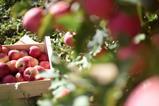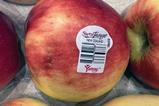FCC chair Steve Johnson says resurgence is possible despite serious impact of weather and disease over past two decades
The chairman of the Florida Citrus Commission says the US state’s once world-beating citrus industry can turn back from “the precipice” if it maintains recent marketing efforts, follows through with changes to maturity standards, and continues to invest in new varieties that are resistant to disease.
Florida’s citrus exports have been decimated over the past two decades by weather disasters, falling returns, and in particular a debilitating outbreak of greening – a disease caused by the bacteria Huanglongbing (HLB) and spread by insects such Asian citrus psyllid.
Greening prevents grapefruit, lemons, limes and oranges from ripening fully and renders it less appealing in terms of taste and flavour. Around 80 per cent of Floridian citrus trees are now reckoned to be infected with the disease.
“If we all had one Christmas wish, I think some would say it would be to go back to the way it was in 2004, before citrus greening was discovered,” said Steve Johnson, who is also owner and general manager of Johnson Harvesting as well as chair of the Commission.
“With all of the research fuelling our future and the technological advancements making their way into commercial viability, the almost-20-year anniversary of citrus greening being discovered finds us at the precipice of a turning point — a leap forward towards a resurgence for the industry,” he continued.
“I’m not saying we almost have the ‘silver bullet’ solution. In fact, I’m stating the opposite of that. I’m stating that instead of a silver bullet (or Christmas wish, you might as well say), we’re presented with multiple tools and new methods to make our industry better and stronger than it has ever been.”
Those tools include the group’s own efforts to boost demand for Florida orange juice, he explained.
“Based on the most recent data from our economic and market research department, the impact of promotional awareness from the 2023/24 season resulted in an extra 75.72mn gallons sold. That’s an extra 13.77mn boxes.”
Maturity and variety
Other initiatives include decisions made in the wake of October’s Hurricane Milton to revise maturity standards for the state’s grapefruit and oranges, which means a bigger proportion of its crop can be packed and sold.
And in late November, the Commission unanimously approved eight-year grower licences for one new rootstock and five new citrus varieties.
These are said to display notable tolerance to HLB, as well as improved performance in terms of colour, brix, and juice.
“While the emergency rule changes will provide immediate help for the remaining 2024/25 harvest season, I am hopeful that the new varieties recently approved for commercial availability will prove to have long-term positive effects for the seasons to come,” Johnson added.











